What Are Co-Occurring Disorders?
Mental health is never simple. While identifying physical health problems can be as easy as administering a blood test, mental health disorders are more subjective and difficult to accurately diagnose.
It may be tempting to label oneself as “depressed” or “OCD” after learning a bit about what constitutes either of these common conditions, but the diagnostic criteria require the expertise of a mental health professional to affirmatively render a diagnosis of a mental illness, and even then there may not be consensus between different providers about the mental health issue in question. Similarly, you may be quick to label yourself or a family member as an addict, but the official categorization of a substance use disorder requires a person to meet certain benchmarks.
Each of Us Has Our Own Unique Set of Experiences
Each of us has our own unique set of experiences and traits, and mental illness is not uncommon, with one in five adult Americans having been diagnosed with a mental health disorder. But it can get particularly complex when a person has multiple mental health disorders or substance use disorders at the same time.
This is known as having co-occurring disorders, and it is an important concept to understand when learning about mental health and mental illnesses. People with co-occurring disorders face risks that those with a single mental health disorder or substance use disorder do not, and the treatment for co-occurring disorders differs from normal treatment protocols.
The National Institute of Health states that half of individuals who experience a substance use disorder during their lives will experience a co-occurring mental health disorder and vice versa.
Other Terms for Co-Occurring Disorder

A person with co-occurring disorders may be referred to as having a dual diagnosis. Care for co-occurring disorders could thus be called dual diagnosis treatment, or you may hear it referred to as integrated treatment.
Dual diagnosis is an older term that has fallen out of favor somewhat as the psychiatric community’s understanding of the interrelated mental health disorders and substance use disorders expanded.
When Substance Abuse and Mental Health Disorders Coincide
The most commonly discussed instances of co occurring disorders are overlapping substance use disorders and mental health disorders. People who struggle with substance abuse are more likely to have mental health conditions in addition to their issues with drug abuse or alcoholism.
The Chicken Or The Egg
There are many reasons for this phenomenon, and the direction of the causation can vary. People with anxiety disorders may drink as a way of self-medicating, and end up dependent on alcohol with a substance use disorder.
From the other direction, people who drink heavily may develop anxiety disorders or depressive disorders as the circumstances of their lives deteriorate. There is a “chicken or the egg” question for many people: which came first, the mental illness or the substance use?
Distinguishing Symptoms Of Substance Abuse From Mental Disorders
However, it is important that a person’s co-occurring disorder exist independently of their substance use disorder for the diagnosis to be made. For instance, if a person experiences hallucinations while using methamphetamine, but not when they are sober, it would be inaccurate to diagnose them with schizophrenia.
The Diagnostic and Statistical Manual used by the American Psychiatric Association specifies that a separate mental illness can only be diagnosed if “The disturbance is not due to the direct physiological effects of a substance (e.g., a drug of abuse, a medication) or a general medical condition.”
A person may experience mental health symptoms while intoxicated or while withdrawing from a substance, but if those issues are directly tied to the substance use they would not qualify that person for diagnosis with a co-occurring disorder.
How Substance Use Can Cover Up A Mental Health Disorder
Substance abuse and mental health are deeply tied to one another, and it can be particularly difficult for a person with severe mental illness to overcome their substance abuse problem. People who seek substance abuse treatment may not even know they are dealing with co-occurring mental disorders until they present for treatment. If their substance use has masked long-term mood disorders or personality disorders, they may be surprised to learn that this is the case.
Many People Self-medicate
Many people “self-medicate,” although this term is misleading, as it suggests that this is actually effective, while in most cases the “medication” in question actually exacerbates the mental health disorder over the long term. Medication prescribed by a clinician is a safer way of treating a mental health disorder.
One example is marijuana. Evidence from longitudinal studies shows a bidirectional relationship between marijuana use and depression, meaning the substance abuse can cause the mental disorder, or the mental health disorder can cause the substance abuse. People who smoke marijuana may believe it is helping them overcome their feelings of sadness, but in the long term it can actually make their mental illness worse. And their substance abuse may discourage them from seeking mental health services, as their addiction makes them unlikely to seek help from mental health professionals who will tell them to stop using.
Common Co-Occurring Disorders

Some mental health disorders are more likely to co-occur with substance abuse than other mental health disorders. This may be because of the way that a co-occurring disorder predisposes a person toward abusing substances. Certain mental illnesses are more commonly seen in treatment centers. Here are a few:
Generalized Anxiety Disorder
This is one of the most common mental illnesses across the board, so it makes sense that it would be among the more common co-occurring disorders. People with generalized anxiety disorder struggle to regulate their anxiety and may have panic attacks or be fearful in social situations. They may turn to alcohol to help them cope in social situations, or to benzodiazepines like Xanax, which are prescribed for panic disorder but can be abused to the point of dependence.
When a person consumes more than the prescribed amount of their medication on a regular basis and becomes dependent, they may qualify for a co-occurring substance use disorder. Young adults with anxiety disorders or panic disorder are at particular risk for substance abuse because of the pressure they experience to engage socially.
Bipolar Disorder
Bipolar disorder is another of the frequently diagnosed co-occurring disorders with substance use disorders. Mental health providers who are treating co-occurring disorders will often use a mood screener to identify mood disorders like bipolar disorder, but as noted above, they must be certain that the manic or depressive symptoms displayed are not solely caused by the substance abuse.
A person who displays manic behavior when intoxicated on stimulants and depressive behavior when withdrawing from stimulants may have overlapping symptoms with bipolar disorder, but the clinician would attribute this impairment to the effects of the drugs if there is no other evidence of bipolar behavior outside of this pattern.
However, people with bipolar disorder often make risky decisions when manic, including using drugs, and these drugs can exacerbate their mania, making diagnosing this mental illness even more complicated in the case of a co-occurring substance use disorder. A treatment center like Turning Point of Tampa can help identify co-occurring disorders and distinguish them from substance use disorders to provide clear guidance through the treatment process.
Borderline Personality Disorder
Borderline personality disorder, or BPD, is another of the co-occurring disorders that is frequently diagnosed alongside substance use disorders. People with BPD have a distorted perception of themselves, others, and reality that shifts rapidly, leading to unstable relationships with others and extreme impulsivity. Many turn to drugs and alcohol to cope with their mental illness and its effects on their lives.
Common Risk Factors
Common risk factors for BPD include a family history of child abuse, which also predisposes a person for a substance addiction. Alcohol abuse is particularly common among people with BPD, who may need dialectical behavioral therapy or other behavioral therapies to address their mental health issues and addiction treatment for their substance abuse issues.
Post Traumatic Stress Disorder
Another common co-occurring mental health condition with alcohol and drug abuse disorders is post traumatic stress disorder, also known as PTSD. PTSD is a mental illness that affects people who have experienced one or more traumatic events and have symptoms that may include intrusive memories, avoidant behaviors, negative thoughts and mood, and hyper-vigilance (always being on guard and unable to relax).
This mental illness is less like other co-occurring disorders in that it has diagnostic criteria that are not shared with symptoms of any substance use disorders, like a history of trauma and the presence of flashbacks and painful memories. You could not mistake a severe case of alcoholism for PTSD in the same way you could confuse it for depression.
But like other co-occurring disorders, PTSD make recovery more difficult, as overlapping substance abuse and mental health issues compound one another. The high rate of US Veterans who struggle with co-occurring disorders of PTSD and substance use disorders is a clear indication of this. Veterans struggle with environmental factors that trigger their PTSD, and turn to drug abuse or alcohol abuse to cope with the harmful effects of this mental illness.
Getting Help For Co-Occurring Disorders
People struggling with co-occurring disorders will have many treatment options, but they will benefit most from a comprehensive treatment program that addresses both their mental health disorders and their substance addiction. Co-occurring disorder treatment requires an understanding of the complex and interwoven nature of the two issues at hand.
A mental illness that coexists with a substance use issue will not magically resolve itself when the substance is removed, and in some cases may even worsen. People who have self-medicated their mental illness for years may see a striking increase in symptoms when they stop using, which can push them back toward using.
Integrated Treatment
Treating co-occurring disorders requires an integrated treatment approach. An integrated treatment program incorporates interdisciplinary knowledge to treat co-occurring disorders. Treatment programs that exclusively focus on substance abuse neglect a major aspect of their health. Outpatient treatment for substance misuse alone may not be sufficient for a person with a co-occurring disorder, even if their substance use is relatively minor.
Treatment programs like Turning Point of Tampa use a treatment team that includes medical staff who understand the chemical basis of addiction and how to treat it, alongside clinicians to treat other mental disorders. These teams work together to identify ways in which mental health disorders compound and worsen substance use and vice versa.
What The Substance Abuse And Mental Health Services Administration Says About Co-Occurring Disorders

SAMHSA, the government’s primary authority on mental health and substance abuse, has advocated for increased screening for mental health disorders and substance use disorders to help detect overlapping conditions. They have noted the issue’s prevalence among people receiving Medication Assisted Treatment (MAT) and noted that people who are getting MAT may suffer from anxiety disorders, cautioning these people against using anxiety treatment medications like Xanax because of adverse effects from combining them with medications used in MAT. SAMHSA also notes that mental health and substance use treatment is an essential health benefit, meaning it must be covered under an insurance plan.
PTSD Symptoms
The symptoms of PTSD include intrusive memories and flashbacks, avoidant behaviors, negative thoughts and mood, and changes in physical and mental reactions.
Complex PTSD
Complex PTSD, involving multiple compounding traumatic experiences, is gradually being recognized as a uniquely challenging mental health disorder.
PTSD Awareness Month
Every June, advocates and patients spread the word about PTSD to decrease stigma and save lives.
PTSD Awareness
Increased awareness of PTSD’s causes and symptoms can help people recognize when they or a loved one are suffering.


